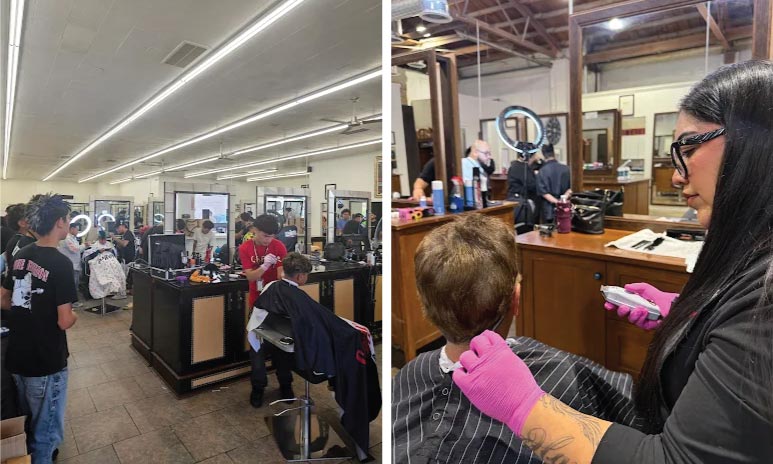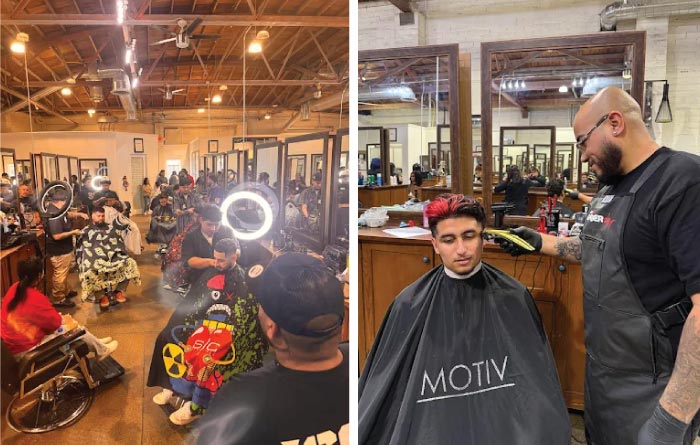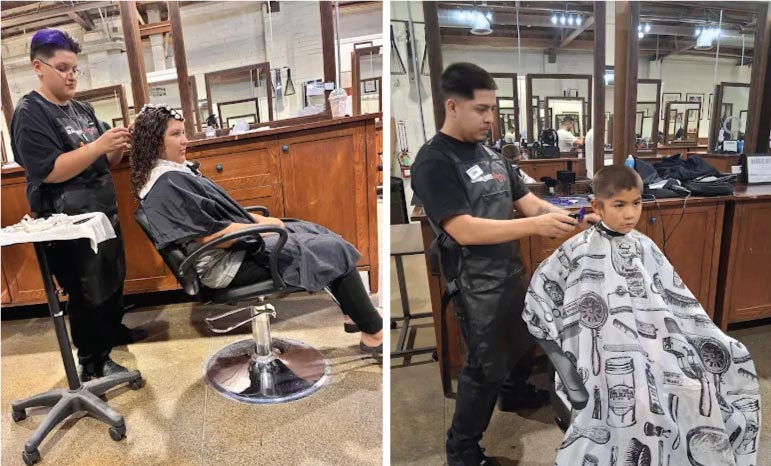Are you ready to turn your passion for beauty into a thriving career? Knowing what do you learn in cosmetology school is the first step toward a vibrant future in the beauty industry. Cosmetology training is an accelerated educational program designed to nurture your abilities and shape your destiny.
At Lawrence & Company College of Cosmetology, our curriculum combines practical skills with essential knowledge to prepare you for success. Our mission is to prepare successful students to pass the California State Board exam and develop their potential as entrepreneurs and future educators.

Mastering the Core of Cosmetology: Hair, Skin, and Nails
Cosmetology is the comprehensive study and practice of beauty treatments, including hair, skin, and nails. A cosmetologist is a trained professional who offers a wide range of services to clients. The foundational training covers all three core areas: hair care, nail care, and skincare.
The Art of Hair Services
Hair services form a large part of what do you learn in cosmetology school. You will acquire both the technical proficiency and the creativity to excel in hairstyling. This training is crucial for launching your career as a hair professional.
- Haircutting and Styling: Learn classic and contemporary techniques for all hair types and lengths.
- Hair Coloring and Lightening: Master chemical treatments, color theory, and advanced coloring applications.
- Chemical Texturizing: This includes services like permanent waving, relaxers, and other texture-altering treatments.
Explore our dedicated Cosmetology course page for a deep dive into this field.

Skincare and Esthetics
Skincare and makeup application are key components of the full cosmetology curriculum. You learn how to provide treatments and address various client complexion concerns.
- Facial Treatments: Practice various facials, skin analysis, and specialized treatments.
- Hair Removal and Makeup: Master techniques like waxing and professional makeup artistry.
If you are particularly passionate about skin, consider our specialized Esthetician Course. This is a 600-hour program spanning 5-7 months, which cultivates highly skilled specialists.

Comprehensive Nail Care
Cosmetology education also includes training in the fundamentals of nail care. This skill set allows you to offer a complete range of beauty services.
- Manicures and Pedicures: Learn proper techniques for nail shaping, cuticle care, and massage.
- Nail Technology: This also covers topics like nail sculpting and design.
For those who want to focus solely on nails, check out our Manicuring program.

Beyond the Services: Business and Licensing
A quality education is about more than technical skills; it also involves the business acumen needed for success. You need to be confident and ready for a thriving career. This is another critical area for what do you learn in cosmetology school.
How Does Cosmetology School Prepare You for the Real World?
Cosmetology schools provide a combination of classroom lectures and extensive hands-on training. Our experienced instructors are passionate about sharing their knowledge and guidance. This dual approach maximizes your development and personal growth as a total person.
- Hands-On Practice: Students work on both mannequins and real clients under instructor supervision in a student salon.
- Salon Management: Courses include business fundamentals, client consultation, communication, and professionalism.
- Safety and Sanitation: Essential theoretical coursework covers safety, sanitation, and state law requirements.

Why is Accreditation Important for Cosmetology Training?
Accreditation is extremely important when choosing a school. It is an essential factor to ensure you receive a quality education. Lawrence & Company College of Cosmetology is proudly accredited by the National Accrediting Commission of Career Arts & Sciences (NACCAS).
Accreditation ensures the school meets high educational standards and guarantees you receive the required training hours for licensure. It also makes qualified students eligible for Federal Student Aid, such as Pell Grants and student loans.

Taking the Next Step in Your Career
If you’re wondering what do you learn in cosmetology school, the answer is a comprehensive education that unlocks your creative potential. Whether you choose our full-time 1000-hour Cosmetology program (33 instructional weeks) or the part-time option (50 instructional weeks), we offer a path for you. We also offer training in Barbering, Instructor Training, and Remedial Courses.
Ready to begin your remarkable learning journey? Contact Lawrence & Company College of Cosmetology today.
Frequently Asked Questions (FAQs)
How long does it take to complete cosmetology school?
The length of a cosmetology program depends on state requirements and whether you attend full-time or part-time. Full cosmetology programs typically require 1,000 to 2,000 hours of training. This translates to approximately 10 to 24 months to complete, depending on the program and schedule.
Is financial aid available for cosmetology school?
Yes, financial aid is often available for students who qualify. Many accredited cosmetology schools participate in federal financial aid programs, including grants, scholarships, and student loans. You must typically complete the Free Application for Federal Student Aid (FAFSA) to determine eligibility.
What are the admission requirements for cosmetology school?
Admission requirements vary by school, but most require proof of a high school diploma or its equivalent (GED). Some states and schools may have additional requirements, such as a minimum age or an admissions interview.
Do I get to practice my skills on real clients during cosmetology school?
Yes, hands-on practice on real clients is a major part of cosmetology education. Students usually begin by practicing on mannequins, then transition to working with real clients in a student salon under the supervision of licensed instructors.
What career opportunities are available after graduating from cosmetology school?
A cosmetology license opens the door to many exciting careers. Career options include being a hair stylist, colorist, makeup artist, nail technician, esthetician, or even a salon manager or owner. Some professionals also work in fashion, film, or as educators.
